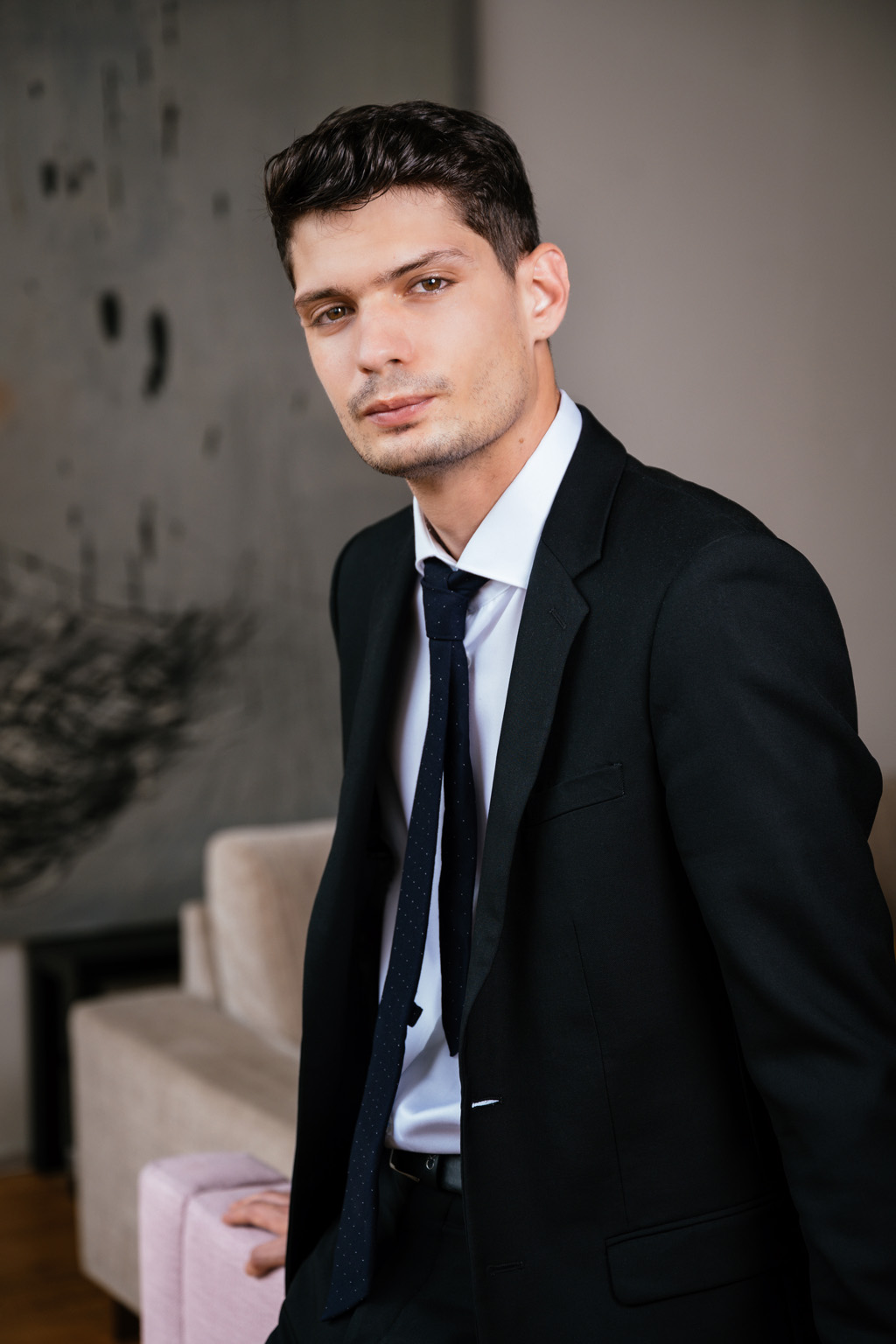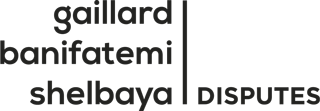Léo Delamare, associate at Gaillard Banifatemi Shelbaya Disputes
“And then one day, the mass of documentation is no longer a mountain”
Why did you choose to study law?
To be honest, law was not a calling. I was also interested in economics, politics and science. I even considered doing a scientific preparatory class to become an engineer.
I was curious about everything, but I was afraid to go down one path and give up on what I had not yet had the chance to discover. My curiosity had locked me in a perpetual dilemma as to which professional path to follow.
I finally went into law because I was told that it opened many doors. It took me a few years before I convinced myself that I had made the right choice, especially when I discovered private and public international law, as well as international arbitration during the first year of my master’s degree (Master’s 1) at the Faculty of Law in Aix-en-Provence.
I was so hooked that I then chose to undergo two successive “Master’s 2” programs, one in European and International Business Law at the University of Paris Dauphine and the other in International Private Law and International Trade at the University of Paris II Panthéon-Assas.
What did you like about it?
My first Master’s 2 took me all the way to India. The master’s program offered a 6-month exchange semester at the National Law School of India University (NLSU) in Bengaluru, which gave me the opportunity to have my first experience abroad and to discover the common law system, two real advantages when you want to specialize in a discipline as transnational as arbitration.
My second Master’s 2 was research oriented and allowed me to deepen my knowledge in international arbitration by writing a master’s thesis on the impact of economic sanctions on international commercial arbitration. On this occasion, I had the opportunity to study Professor Emmanuel Gaillard’s theory of the arbitral legal order and its recognition by national legal orders through notions such as transnational public policy, i.e. the principles of international public policy on which a broad consensus has been formed in the international community.
Did you meet him then?
No, and I had no idea that one day I would have the chance to intern with Shearman & Sterling and meet Professor Emmanuel Gaillard and Yas Banifatemi.
What did you do after your two master’s degrees that led you to do an internship with Shearman & Sterling?
I passed the Paris Bar exam and then entered the Bar School. As a trainee lawyer, I did my first internship at the Cairo Regional Centre for International Commercial Arbitration (CRCICA). I had always wanted to travel to North Africa and this internship allowed me to work in an arbitral institution and thus to familiarise myself with the procedural specificities of international arbitration. This institution administers many cases related to the construction industry, which later became my field of interest. Moreover, its rules are based on those of the United Nations Commission on International Trade Law (UNCITRAL) which are widely used in international commercial arbitration proceedings.
In parallel, I had several interviews for a second internship with Shearman & Sterling. During these interviews I met Pierre Viguier and Coralie Darrigade (two lawyers now working at Gaillard Banifatemi Shelbaya Disputes), with whom I was able to discuss various legal topics, ask questions about being a lawyer in international arbitration and the diversity of cases on which Shearman & Sterling’s arbitration team was working. As someone who was always in a quandary, I was convinced, after these interviews, that I had finally found my professional path and that the team of Professor Emmanuel Gaillard and Yas Banifatemi was the perfect match for me.
What did you do during your internship with Shearman & Sterling?
I spent a year training with Shearman & Sterling and was therefore able to work on a wide variety of cases, both commercial and investment arbitrations. I ended up focusing on construction cases, on which I worked with Maude Lebois, who passed on to me her enthusiasm for this field of arbitration.
How did your recruitment at Gaillard Banifatemi Shelbaya Disputes go?
After my one-year traineeship with Shearman & Sterling I decided to apply for an associate position. Shortly afterwards, I learned about the founding of Gaillard Banifatemi Shelbaya Disputes. I was not expecting this at all and was therefore quite nervous about whether or not I would be given the opportunity to join the team of Professor Emmanuel Gaillard and Yas Banifatemi. Fortunately, I quickly received a call from Yas Banifatemi informing me of my recruitment. I could not have been happier.
What was the first case you worked on as an associate?
It was a rather complex ICSID investment arbitration in involving allegations of corruption, collusion, self-dealing, anti-competitive conduct and tariff manipulation.
This was very challenging work because the proceedings had started in 2016 and I got involved in the case just before the hearings, so after the parties had submitted their memorials, each of which were several hundred pages long. I had to get up to speed and learn the case very quickly to be ready to help the team prepare for the hearings.
I had the great privilege of attending the oral arguments and cross-examinations of Professor Emmanuel Gaillard and Yas Banifatemi, two prominent figures in the arbitration world whom I had admired since I was a student and who were now together in the same room as me. I was nested at the top of the mezzanine of our offices on rue de Londres, with a direct view of the main room where they were doing their virtual cross-examinations (covid times…). It was indescribable and I often recall that moment.
I was then assigned to two large construction cases relating to oil & gas projects in North Africa, on which I have been working full time ever since. This time I was lucky enough to start on these cases from the very beginning, which gave me the opportunity to learn all the ins and outs of the projects and made me want to dedicate myself 100%.
As a junior associate on these two cases, I am in charge of following-up the correspondence and examining the documentation sent by the clients, but I am also fully involved in drafting the submissions, interviewing the witnesses and talking to the experts. It is very formative and has reinforced my desire to specialise in construction arbitration cases.
So, you really like construction law? Why is that?
Construction is a very multi-disciplinary industry which requires you to think not only as a lawyer, but also to some extent as an engineer depending on the issues you are dealing with. You have to learn and understand what the different stages and activities of a construction project are, how the owner and contractor’s organisation charts are structured, how a specific piece of equipment or facility works, etc.
Furthermore, construction projects span several years and often generate a large amount of documentation which we lawyers have to make sense of, establishing a chronology and identifying the causes of delays. By examining the correspondence between the owner and the contractor, progress reports and minutes of meetings, we can trace the life of the project and spot the stumbling blocks between the parties. There is a real investigative work that I truly like.
However, documentation is never enough, and it is essential to meet with the operational people working on the construction site to fully understand the often-technical issues involved. We therefore have to travel and talk to engineers specialising in drilling, pipeline welding, commissioning, etc. The icing on the cake is that the construction projects I am working on are both located in North Africa, a destination I am particularly fond of.
In the end, I am now able to satisfy my legal curiosity, my interest in other more scientific disciplines and my desire to travel all at once.
So, you have somehow reconciled all your interests?
I could not be more spoiled!
What is the specificity of work ethics at Gaillard Banifatemi Shelbaya Disputes?
For me, one of the key features of Gaillard Banifatemi Shelbaya Disputes is the ability for us, junior associates, to keep learning every single day in a caring and supportive professional environment.
More than partners, we have mentors and I feel that is really unique to this firm. Since my internship, I have been working with Maude Lebois, who has more than 20 years of experience in the construction sector, and I continue to learn from her every day.
There is also a strong sense of trust with the people we work with. Even junior associates are given a lot of responsibilities, but they are never isolated. Partners, counsels and more senior associates are always available to discuss, confront ideas and answer our questions.
How do the people around you perceive your activity as an arbitration lawyer?
It raises a lot of questions, especially when I explain that I work on construction cases where I can spend weeks examining welding issues! But it is also a bit impressive: from one day to the next, I can be asked to go to North Africa, to a construction site in the middle of the desert (it does not happen every day but still… Sometimes you feel like you are in a movie).
What’s next for you?
My goal is to keep developing knowledge and building on my experience in the construction sector. As Maude Lebois said to me, it is by multiplying cases in this industry that you gain in efficiency and can identify certain type of issues more quickly. And then one day, the mass of documentation is no longer a mountain: you end up having the right reflexes and knowing where to look. That is what I would like to achieve.
Interview by Valentine Faure, journalist

